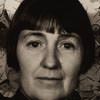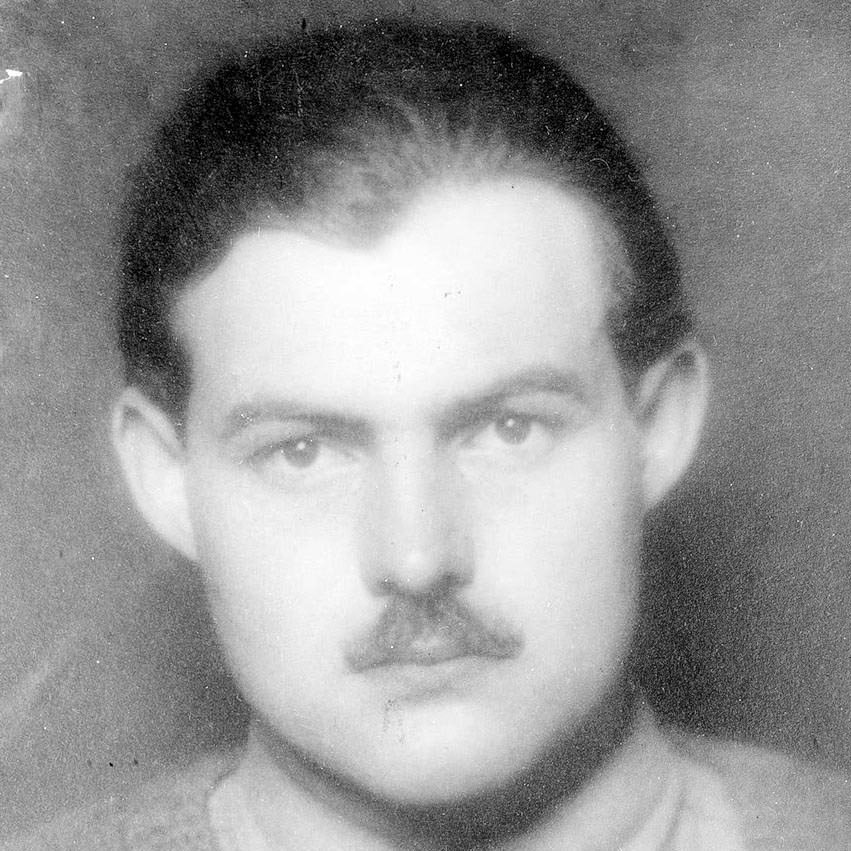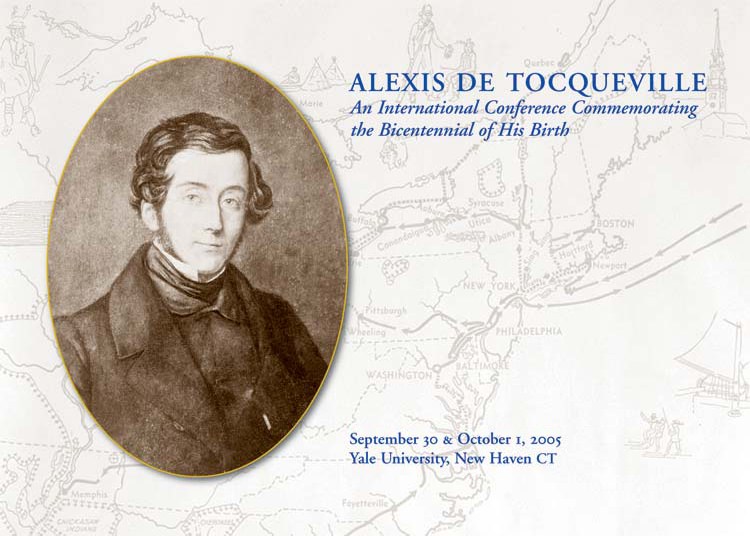Podcasts
 |
A. A. Brill and Mabel Dodge Luhan: A Reading from their Correspondence Psychologists Patricia Everett and Paul Lippmann read from the archival correspondence between Luhan and her psychoanalyst, A. A. Brill. This reading was recorded at the Beinecke during the 2011 exhibit Psyche & Muse: Creative Entanglements with the Science of the Soul. (52:40) |
 |
The Rediscovery of Monkeys’ Moon Richard Deming, critic, writer, and lecturer in the Yale Department of English describes the silent film Monkeys Moon. (18:41) |
 |
American Letters: Herman Melville to Nathaniel Hawthorne, 1852 The ninetheenth century American authors correspond. (3:21) |
 |
American Letters: Ernest Hemingway to Ezra Pound, 1931 Despite a broken arm and fingers, Ernest Hemingway writes to Ezra Pound. (3:26) |
 |
American Letters: Rachel Carson to Raymond J. Brown, 1946 Rachel Carson, the American naturalist and author of Silent Spring, writes to the editor of Outdoor Life magazine. (4:22) © Rachel Carson Estate |
 |
American Letters: Mark Twain to Walt Whitman, 1889 Mark Twain writes an open letter on the occasion of Walt Whitman’s 70th birthday. |
 |
The Van Vechten Paradox: The Harlem Renaissance, a White Man, and his Black Story Emily Bernard, Professor of English and Ethnic Studies at the University of Vermont, and the 2008/2009 James Weldon Johnson Fellow in African American Studies at the Beinecke Library, chronicles the life of Carl Van Vechten. (40:55) |
 |
Alexis de Tocqueville and the Challenge of Democracy Frank Turner, John Hay Whitney Professor of History and the director of the Beinecke Rare Book and Manuscript Library describes the life and writings of Alexis de Tocqueville. (29:53) |
 |
Living Distance: The Life and Papers of James Welch An audio essay by Eric Ward ‘09, read by Presca Ahn ‘09, exploring the life, legacy, and archive of James Welch, the American writer of Blackfeet and Gros Ventre heritage. (15:28) |
 |
Robert A.M. Stern on the Beinecke Library Robert A.M. Stern, J.M. Hoppin Professor and Dean of the Yale School of Architecture, discusses the architecture and history of the Beinecke Library, designed by Gordon Bunshaft of the firm Skidmore, Owings and Merrill. Construction photographs of the Beinecke Library are available in the Beinecke’s Digital Collections. (7:17) |
 |
Jane Wodening and Stan Brakhage Scrapbooks, 1958-1967 Richard Deming, lecturer in the Department of English at Yale University, describes a collection of scrapbooks that document the work and family life of Jane Wodening and her husband, the avant-garde filmmaker Stan Brakhage. See images from the scrapbooks in the Beinecke Library’s Digital Collections. (16:31) |
 |
Steal Not This Book: Collecting and Cataloging the Betsy Beinecke Shirley Collection The Betsy Beinecke Shirley Collection of Children’s Literature is one of the largest and most diverse collections of its kind. In this podcast, librarian Ellen Ellickson speaks with Tim Young, Curator of Modern Books and Manuscripts, about the collection. (19:45) |
 |
Digital Readers and the Future of the History of the Book In this lecture from the Beinecke’s History of the Book Series, John Palfrey, Professor of Law at the Harvard Law School, Co-Director of the Berkman Center for Internet and Society, Vice Dean of the Harvard Law Library, and co-author of Born Digital: Understanding the First Generation of Digital Natives, speaks about digital readers and the future of the book. (46:39) |
 |
Looking for Richard Wright Caryl Phillips, Professor of English at Yale University describes his process of writing the introduction to the Vintage Books, British edition of Richard Wright’s landmark text, Native Son. (15:27) |
 |
Richard Wright, Native Son, and the Beinecke: Being Brought to My Senses Jonathan Holloway, Yale Professor of History, African American Studies, and American Studies recounts visiting the Beinecke Library in his first month of graduate school and the transformative experience that grew out of his surprise encounter with Richard Wright’s landmark text, Native Son. (7:27) |
 |
Unfolding the Corners: Intimacy in the Archive of Margaret Anderson Famous for her strong opinions about art as well as for her beauty and wit, radical editor Margaret Anderson was a key figure in American and European Modernism. Archivist Molly Wheeler speaks with Nancy Kuhl, Curator of the Yale Collection of American Literature, about this archival collection. (23:06) |
 |
Audubon’s Birds of America at the Beinecke Antiquarian bookseller William Reese, Yale class of 1977, discusses American naturalist and artist John James Audubon’s monumental work Birds of America. (28:45) |
 |
The Gutenberg Bible at the Beinecke Dr. William Whobrey, Assistant Dean of Yale College and Lecturer in Germanic Languages and Literatures discusses Johannes Gutenberg, Yale’s copy of the Gutenberg Bible, and the significance of the invention of moveable type. (7:33) |
 |
Metaphor Taking Shape: Poetry, Art, and the Book In this podcast, Nancy Kuhl, Associate Curator of the Yale Collection of American Literature discusses highlights from the exhibition, Metaphor Taking Shape. (7:47) |
 |
Drawn to Enchant: Original Children’s Book Art in the Betsy Beinecke Shirley Collection Timothy Young, curator of the Betsy Beinecke Shirley Collection of American Children’s Literature, is interviewed by Nancy Kuhl, curator of the Yale Collection of American Literature about his recent publication, Drawn to Enchant. (12:03) |
 |
Documenting Slavery A podcast describing highlights of the 2007 exhibition Documenting Slavery. (6:41) |
 |
Rudyard Kipling: The Books I Leave Behind A podcast by collector, guest curator and Kipling scholar David Alan Richards, describing how he built the world’s largest collection of unique Kipling items. (12:01) |
 |
Yale Collection of American Literature Reading Series Podcasts of poetry readings by contemporary American poets. The current schedule of reading is available online through Poetry at Beinecke Library: Readings at Beinecke. Recordings from past readings are available from the Yale Collection of American Literature Reading Series finding aid. |
![]() Yale University Beinecke Rare Book and Manuscript Library. Some rights reserved. Unless otherwise indicated, all of our podcasts are licensed under a Creative Commons License.
Yale University Beinecke Rare Book and Manuscript Library. Some rights reserved. Unless otherwise indicated, all of our podcasts are licensed under a Creative Commons License.